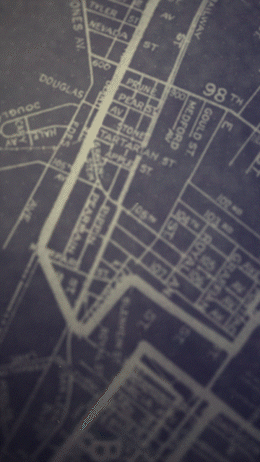







THE ISSUE IS SYSTEMIC. It's happening to Black and Latino families in neighborhoods across the country.
People are trying to refinance their mortgage or finance the purchase of a new home all for it to be derailed by a mundane and often overlooked step in the lending process - the property appraisal.
The people on all sides of the transaction - whether they're the owners or the buyers - are being hit with home appraisals far lower than they expected when compared to what similar homes are selling for in their neighborhoods or even compared to re-appraisals of their own homes.
In some cases, the differences are staggering and potentially life-changing for families.
The cost of finding themselves "lowballed" can be tens or even hundreds of thousands of dollars. Or it can prematurely end the dream of homeownership altogether.
The Austin family in Marin City, California saw their home value jump by almost a half million dollars between two appraisals.
Before the second appraisal, the Austins took down artwork and family photos. They even removed toiletries and any other potential hint a Black family lived there. Then, they arranged for a white friend to stand in for the Black family during the re-appraisal.
Carlette Duffy, a Black homeowner in Indianapolis, saw her home value double after doing the same kinds of "white washing" of her home. Duffy also asked a white friend to stand in during an appraisal.
These stories are not isolated incidents, according to an analysis of government home-lending data by the ABC Owned Television Stations' data journalism team.
The analysis looked at more than 50 million home loans and found that refinance applications in predominantly Black neighborhoods coast to coast are nearly five times more likely to involved an under-appraisal than applications in white communities.
The analysis also found that home-purchase loans in Black neighborhoods are more than twice as likely to be appraised at less than the market value that the buyer and seller agreed upon.
The phenomenon revealed in the data analysis exists for thousands of families in neighborhood after neighborhood in cities across the United States. In community after community, Black people and Latino people are facing the consequences of "lowballing" more frequently than white neighbors.
IN CALIFORNIA'S BAY AREA: Across the San Francisco-Oakland metro area, 4% of homes sold in mostly Black neighborhoods and 5.7% of homes sold in mostly Latino neighborhoods were under-appraised, compared to 1.8% in mostly white neighborhoods.
IN JUST ALAMEDA COUNTY, where Oakland is located, the gap was much wider: 4.1% in Black neighborhoods, 5.1% in Latino neighborhoods and 1.1% in white neighborhoods.
IN CHICAGO: Across the metro area, 12.4% of homes sold in mostly Black neighborhoods and 11% of homes sold in mostly Latino neighborhoods were under-appraised, compared to 7.9% in mostly white neighborhoods.
IN JUST COOK COUNTY, the gap was slightly wider: 12% in Black neighborhoods, 10.2% in Latino neighborhoods and 7% in white neighborhoods.
IN NEW YORK CITY: Across the five boroughs, 2.9% of homes sold in mostly Black neighborhoods and 2.3% of homes sold in mostly Latino neighborhoods were under-appraised, compared to 0.6% in mostly white neighborhoods.
ACROSS THE ENTIRE METRO AREA, including Newark and Jersey City in New Jersey, the disparity was 5.2% in Black neighborhoods, 4.4% in Latino neighborhoods and 3.1% in white neighborhoods.
IN PHILADELPHIA: Across the metro area that includes Camden, N.J., and Wilmington, Del., 10.6% of homes sold in mostly Black neighborhoods and 14% of homes sold in mostly Latino neighborhoods, compared to 6.3% in mostly white neighborhoods.
IN JUST PHILADELPHIA COUNTY, the differences were similar to the wider region: 9% in Black neighborhoods, 14.4% in Latino neighborhoods and 6% in white neighborhoods.
IN HOUSTON: Across the metro area, 11.4% of homes sold in mostly Black neighborhoods and 10.1% of homes sold in mostly Latino neighborhoods, compared to 5.9% in mostly white neighborhoods.
IN JUST HARRIS COUNTY, the gap was almost identical: 11.2% in Black neighborhoods, 10% in Latino neighborhoods and 5.9% in white neighborhoods.
It's no secret that homeownership is the pathway to the American Dream, from building a financial security blanket to establishing wealth over generations.
But if people's homes are not valued for what they are worth, then those people essentially being cheated out of that dream. The data analysis shows that's happening more often to Black and Latino homeowners and would-be homebuyers than it is for white people.
It's that lost equity that's keeping families of color from creating generational wealth and contributes to the racial wealth gap that's been growing for generations in America.
The coverage of appraisal bias has caught the attention of the White House and Congress and the Biden administration has been working to address some aspects of the issue. It's also become the focus of numerous complaints to government oversight agencies and lawsuits.
The increasing attention also has spawned an effort to reform the property appraisal industry with legislation in state houses across the country and in the U.S. Congress. Most notably, an additional ABC Owned Television Stations' analysis found that the industry is one of the least diverse professions in the county at more than 97% white - with many communities having no appraisers of color.
The appraisal industry says the industry is focused on ensuring every appraisal is unbiased.
The Appraisal Foundation President Dave Bunton said in a statement:
"The Uniform Standards of Professional Appraisal Practice, which dictate the ethical standards of appraisers, have prohibited bias and discrimination against protected classes since their inception. One allegation of bias and discrimination is too many, and we are committed to continuing to work to build the public's trust in the appraisal profession."
You can explore the differences in the percentages of under-appraised home sales in mostly Black, mostly Latino and mostly white neighborhoods in dozens of large metropolitan areas by looking up your city below, according to ABC OTV's analysis of tens of millions of home-loan applications that are made public every year by the federal government.
If you believe you've been "lowballed" on a home sale or mortgage refinance appraisal, here's our step-by-step guide to help you take action.
For our analysis, we used nationwide home loan originations data collected by the Federal Housing Finance Agency (FHFA) to measure disparities in "appraised values" vs. "contract" (or sales prices) for single-family homes sold and refinanced between 2018-2020, based on the racial makeup and income of census tract neighborhoods and homebuyers.
We used elements within the datasets to calculate an estimated sales price of each home, and compared that to the "property value" of each home - a proxy for the appraised value, according to FHFA.
Based on the calculations, we tallied the number of homes sold or refinanced in census tracts where the appraisal was HIGHER or LOWER, overall, than our calculated contract price in a sales origination.
We used 2019 census demographic data to develop population, racial makeup, income and other characteristics of each tract to look at disparities.
The FHFA released its own nationwide analysis of appraisal bias in late October using actual appraisal data and found similar disparities across America.